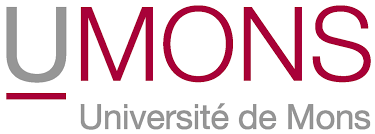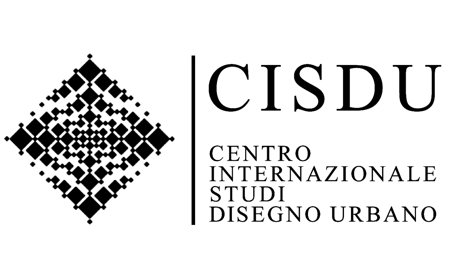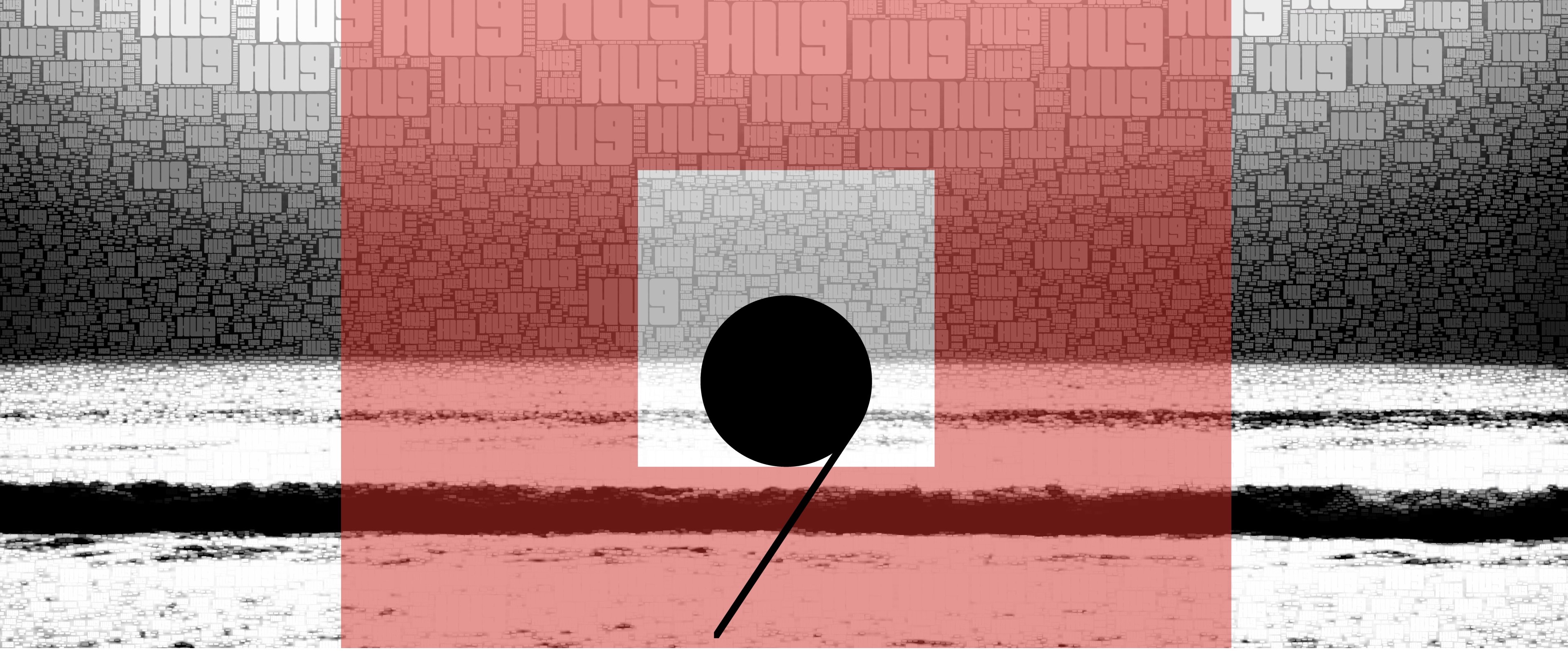9th International Symposium on Information and Communication Technologies in Urban Environments
Data Driven City
November 23-25, 2023
Faculty of Applied Sciences of Ait Melloul, Ibn Zohr University, Agadir, Morocco
Organized by:
|
Faculty of Applied Sciences of Ait Melloul Ibn Zohr Agadir University, Morocco |
|
|
Paragraph Laboratory Paris8 University | CY Cergy-Paris University, France |

|
HyperUrban
History of city has always been linked to that of technological developments. Digital technology reinforces the city in its quest for new dynamics of spatial and temporal reconfigurations that can contain new socio-cultural, socio-economic and socio-political ruptures and practices.
HyperUrban conferences offer scientific and technological debates and reflections on city evolving, in architectural, artistic, communicational, informational, philosophical, political, socioeconomic, strategic, technical and urban planning terms.
These meetings are addressed to all actors who "think" and "live" the city in the post-digital era, whether they are administrators, architects, artists, researchers, economists, philosophers, politicians, psychologists, sociologists, urban planners or visionaries.
The term HyperUrban questions the territorial changes generated by digital technologies from a multi and trans disciplinary perspective.
For years, digital devices have been included in public policies, as facilitators of the establishment of creative economy which is an important issu of cooperation between arts, sciences, technologies and industry. By promoting cross-functionality between sectors of activity, it stimulates innovation and competitiveness in terms of the supply of products and services. The concept of creativity is not limited only to the cultural, creative and communication industries, but it also concerns development policies and territorial planning. In this case, creativity consists on the implementation of various actions: communicational, organizational, technological, artistic, cultural, urban planning, etc. with the aim of reducing spatial and societal inequalities, and encouraging the participation of citizens, for example via intermediation platforms.
HyperUrban.9
The term "Data Cities" incorporates postmodernism, inventiveness, adventure and creation. Postmodernism, in the sense of Jencks1, by proposing conceptual breaks with certain urban practices and designs on the one hand and on the other hand by referring to new concepts resulting from Data Science which can enrich urban imagination, such as the concepts of social networks, the Internet of Things (IOT), connectivity, traceability, ubiquity, etc.
In a context of data cities, i.e. digital city, inventiveness becomes a daily practice that is part of city life. Today, all inhabitant involved in the development of the social, cultural, artistic, economic or political city, is "naturally" invited to invent and/or continually renew his practices of communication, information, production , sharing, exchange and existence in the new hybridized spaces of the city.
The concept of "data cities" evokes questions, which are strongly and discreetly, existential that can abolish many dogmas as welle as cultural, philosophical and ethical borders relating to the "City in the making".
HU9 addresses the issue of the Data Driven City and not limited to it, it remains open to any contribution proposing reflections and/or achievement(s) in the following areas (non-exhaustive list):
- Hybrid land planning
- Territory Rewriting & Rereading
- Digital mapping
- Territorial creativity
- Design of information and communication in an urban space
- Design of communicative objects in the city
- Adaptive design for smart city management
- Editorialization of territories
- Territorial and digital governance
- AI and multiscalar information modeling
- Territorial branding and innovation
- Territorial innovation
- Geospatial interfaces, data production modes and geotagging
- Mixed reality games or pervasive games as forms of city appropriation
- Territorial marketing
- Digital mediations and city identities
- Modeling and visualization of territorial data
- New Geographic Information Systems (GIS)
- Practices and representations of the city
- Temporal semiotics of the city
- Territorial strategies and policies based on digital devices
- Temporalités de la ville et des formes urbaines
- Creative tourism
- Digital Urbanity
- Hybrid City
- Visualization of urban data
Partners of the 9th edition
|
DIDA, Florence, Italy |

|
| Mons University, Belgium |

|
|
SicLab Laboratoiry Côte d'Azur University, France |

|
|
CISDU, Centro Internazionale di Studi sul Disegno Urbano Firenze Florence, Italy |

|
|
UMR Prism Marseille, France |

|
|
LARSH Laboratoiry, DeVisu Départment Hauts-de-France Polytechnique University, France |

|
Conference Languages
The official languages are French and English, for papers and presentations.
Important Dates
The schedule for scientific contributions is as follows:
Instructions to authors
| Abstracts (for communication in Syposium) |
A notice will be given for an oral communication at the conference. Abstracts will be subject to a double-blind reviewer by the scientific committee. Abstract submission is to be uploaded at Easychair platform (address to copy in the browser bar): https://easychair.org/conferences/?conf=hu9 Abstracts of communications will be published in online digital proceedings. |
| Full article(for a collective book publication) |
Following the symposium, the complete texts submitted, will be expertized a second time in double-blind, the selected papers will be published in a collective book, by Europia editions, Paris, France
The authors of the accepted papers at the end of the evaluation process will be invited to submit a non-anonymized version. |
Registration / Participation fees
Registration (befor July 20, 2023)
Registration is compulsory at least for one of the authors of each accepted communication.
Authors are invited to complete the following register form: Author registrations are closed
Participation fees (befor September 20, 2023)
Terms of payment and participation fees are as follows:
| Fees for registration before September 20, 2023 | Academic / Professional: 180 euros |
| Fees for registration after September 20, 2023 | Academic / Professional: 250 euros |
Participation fees include:
- participation in the symposium
- 1 copy of the symposium proceedings
- coffee breaks
Participation fees:
| Payment by bank transfer to Europia Productions |
Identification Internationale (IBAN) IBAN FR76 3000 3031 9000 0207 2706 978 Identification internationale de la Banque (BIC) SOGEFRPP |
| Payment by purchase order (public bodies) |
The purchase order must be made out to the name of: Europia productions 15 avenue de Ségur, 75007 Paris, France. e-mail : info@europia.fr | https://europpia.fr |
| Bank check payment |
The bank check must be attached to the registration form and made payable to: Europia Productions Be sure to mention your name and the HyperUrbain.9 reference on the back of the bank check. Europia Productions, 15 avenue de Ségur, 75007 Paris, France. |
Program
Thursday, November 23, 2023
| Welcoming to the participants: 9h00 |
|---|
| Opening of the Symposium: 9h30 |
|---|
|
|
Intervention invitée : 9h45-10H30
Modérée par Mr Ali Rachidi, Doyen de la Faculté des Sciences Appliquées, Ait melloul |
|---|
|
-Digitalisation des produits de l'HCP : enjeux et réalisations Lhoucine Al ARABI, Directeur de HCP, Agadir, Maroc |
|
Session Smart-city : 10h45 - 12h30
Modérée par Nasreddine Bouhai, Université de Paris 8 |
|---|
|
-L’idéal de la ville réplicable au défi des éléments invisibles. De la perspective géométrique aux Digital Twins, les enjeux des liens entre l’espace urbain et ses représentations
-The Street-Smart City: Mapping Relational Networks in the Slums of Rio de Janeiro Coffee break
-Trafic routier et pollution de l'air à Paris : une carte interactive pour visualiser la répartition des émissions de CO2
-Smart Dublin. Évolution des méthodes participatives dans la ville numérique |
Lunch break
|
Session City data et City event : 13h15-16h15
Modérée par Nasreddine Bouhai, Université de Paris 8 |
|---|
|
-City Sonic Data – quand la création sonore numérique redéfinit l’itinérance urbaine
-City data, de la cité idéale aux données numériques
-Les corps ignorés de la ville des données : exploration poétique et artistique Coffee break
-Blockchain pour sécuriser des réseaux internet des objets (IdO) dans smart city
-] P P P [ : Pol Pipoling Project |
Friday, November 24, 2023
| Welcoming to the participants : 9h00 |
|---|
| Session Modélisation des données : 9h30-10h30 |
|---|
|
-Le territoire intelligent de demain : du Vivant aux jumeaux numériques
-Quelle « designabilité » des dispositifs numériques pour mieux intégrer l’habitant dans les processus participatifs ? |
| Session Médiation et attractivité territoriales : 10h45-12h30 |
|---|
|
-Evolution des écritures et lectures médiatiques des sites touristiques par l’appareil photo Coffee break
-Les nouveaux territoires de l’expérience hyperurbaine: L’enjeu de la gamification du patrimoine dans les mondes numériques immersifs
-Le numérique au service de la médiation du territoire |
Lunch break
| Session Dispositifs GéoWeb/SIG : 15h00- 16h30 |
|---|
|
-Utilisation du Géoweb communautaire pour améliorer la (co)conception des plans d’aménagement. Cas de la ville de Taourirt au Maroc
-Le web SIG, un outil approprié pour la gouvernance urbaine |
| The Closing of the Symposium: 16h30-17h00 |
|---|
Scientific organizing committee
- Khaldoun ZREIK, Paragraph, Paris 8 University | CY Cergy-Paris University, France
- Ali RACHIDI, FSA, Ait Melloul, Morocco
- Nasreddine BOUHAI, Paragraph, Paris 8 University | CY Cergy-Paris University, France
International Advisory Board
- Naoufel ABBES, Higher School of Design Sciences and Technologies, Manouba University, Tunis, Tunisia
- Hassan AIT HADDOU, National School of Architecture of Montpellier, LIFAM, France
- Julien ANGELINI , Università di Corsica Pasquale Paoli, France
- Françoise ALBERTNI, Università di Corsica Pasquale Paoli, France
- Roberto BARTHOLO, Federal University of Rio de Janeiro, Brasil
- Vincent BECUE, Mons University, Belgium
- Omar BLIBECH, Gulf University, College of Engineering, Kingdom of Bahrain
- Nasreddine BOUHAI, Paragraph, Paris 8 University| CY Cergy-Paris University, France
- Hafida BOULEKBACHE-MAZOUZ, Hauts-de-France Polytechnique University, France
- Antonio CAPESTRO, DIDA, Florence University, Italy
- Ghislaine CHABERT, Elico, Lyon, France
- Didier COURBET, IMSIC, Aix Marseille University, France
- Natacha CYRULNIK, Aix Marseille University, France
- Azdine DLIOU, FSA, Ait Melloul, Morocco
- Emmanuel EVENO, Toulouse 2 University, France
- Hammou FADILI, Fondation Maison des sciences de l'homme (FMSH), France
- Abdelkrim HAQIQ, Hassan 1st University, FST, Morocco
- Jacques IBANEZ BUENO, Savoie Mont Blanc University, France
- Ayoub KADIM, FSA, Ait Melloul, Morocco
- Panagiotis KYRIAKOULAKOS, University of the Aegean, Greece
- Yasmine LAMARI, FSA, Ait Melloul, Morocco
- Alain LAMBOUX-DURAND, Université de Franche-Comté, France
- Patrizia LAUDATI, SicLab Méditerranée, EUR CREATES, Côte d’Azur University, France
- Sylvie LELEU-MERVIEL, Hauts-de-France Polytechnique University, France
- Vincent MEYER, Cote d'Azur University, France
- Hassa OUAHI , FSA, Ait Melloul, Morocco
- Cinzia PALUMBO, CISDU, Centro Internazionale di Studi sul Disegno Urbano Firenze, Italy
- Ali RACHIDI, FSA, Ait Melloul, Morocco
- Franck RENUCCI, Toulon University, France
- Imad SALEH, Paragraph, Paris 8 University| CY Cergy-Paris University, France
- Anis SEMLALI, American University of Ras Al Khaimah, UAE
- Modestos STAVRAKIS, University of the Aegean, Greece
- Parthasarathy SUBASHINI, Avinashilingam University, India
- Marc TANTI, Aix-Marseille University, France
- Antonella TUFANO, Paris la Sorbonne University, France
- Marc VEYRAT, Paragraph, Paris 8 University| CY Cergy-Paris University, France
- Khalid ZEBBARA, FSA, Ait Melloul, Morocco
- Khaldoun ZREIK, Paragraph, Paris 8 University| CY Cergy-Paris University, France
Local organizing committee
- Ali RACHIDI, FSA, Ait Melloul, Morocco
- Yasmine LAMARI, FSA, Ait Melloul, Morocco
- Ayoub KADIM, FSA, Ait Melloul, Morocco
Main Contact
info![]() hyperurbain.org
hyperurbain.org
